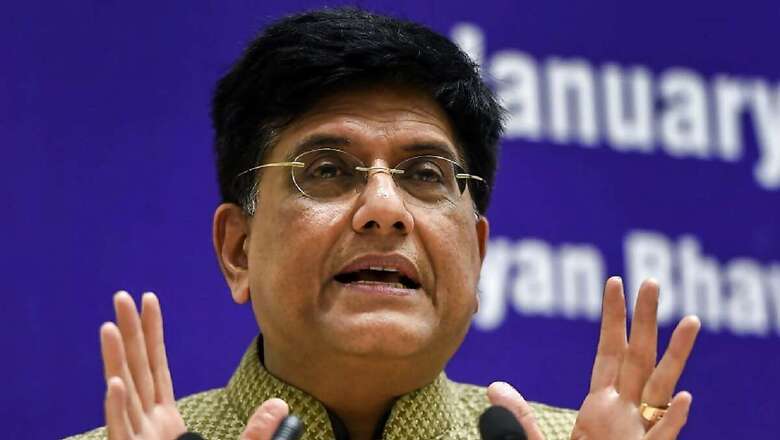
views
Business communities of India and ASEAN should work to resolve their differences, remove non-tariff barriers, ensure sanctity of rules of origin and open markets to expand two-way trade, Commerce and Industry Minister Piyush Goyal said on Thursday.
Addressing the ASEAN-India Business Council, Goyal said both the sides need to work together to further this relationship as two-way trade is witnessing signs of decline from USD 81 billion to USD 77 billion, "probably the first time we saw a 5 per cent de-growth".
He said India and ASEAN (Association of Southeast Asian Nations) have not been able to harness the full trade potential for various reasons, but now is the time to expand trade, address concerns and resolve differences. Goyal said the business council meeting is a good forum to discuss concerns and best practices, share ideas, and flag the problems.
"It is important that businesses on both sides work to resolve differences, work to create a more valuable and trusted regional value chains, remove the non-tariff barriers on both sides, ensure sanctity of rules of origin, and open markets to expand trade because in my humble view, as they (people) say in hindi, 'taalee do haath se bajti hai' (It takes two hands to clap)", he said. "We will have to work together and we can create a resounding sound which will be heard by the whole world. But if each one of us only remains committed to themselves and does not look to further this relationship , our trade which is already seeing signs of falling from USD 81 billion to USD 77 billion…can at times move into the downward spiral," Goyal added.
The minister said the two sides have not yet been able to start the review of free trade agreement in goods. He added that businesses can play the role of a bridge to help resolve the issues "amicably and quickly".
He said problems that do not resolve in a quick time frame have the risk of expanding and "sometimes growing beyond control, beyond repair". So businesses of both the sides should work together, embrace each other, and embrace each others' problems to resolve them. The two-way trade has increased from USD 57 billion in 2010 to only USD 77 billion in about nearly 9-10 years, which does not present an exciting picture, Goyal said.



















Comments
0 comment